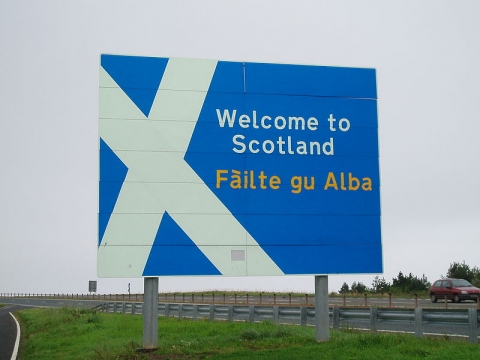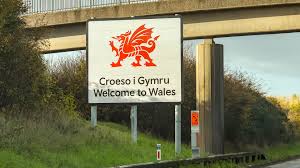England's approach to easing of travel restrictions described as "shambolic" by Celtic neighbours

Speaking at the Downing Street press briefing, British Prime Minister Boris Johnson announced that: "Instead of quarantining arrivals from the whole world, we will only quarantine arrivals from those countries where the virus is sadly not under control." The result is that people travelling from a named list of 59 places and 14 British overseas territories will not have to quarantine on arrival in England unless they have travelled through a place which is not exempt.
The Devolved Administrations of Scotland and Wales are yet to decide whether to ease travel restrictions and have described the changes announced for England as "shambolic". Scotland's First Minister Nicola Sturgeon said her government would not be "dragged along in the wake of another government’s, to be quite frank, shambolic decision making process". She did however, say that the Scottish government would work to undertake a proper assessment of countries seen as low-risk.
The United Kingdom government has faced much criticism over its poor response to the Covid-19 pandemic. Seen to be one of the worst among similarly developed nations, the UK, with more than 60,000 excess deaths in the pandemic, has the second highest excess death toll per million people in the world after Spain.
Amongst many other factors has been the failure of the UK to close its borders. A recent study by the Covid-19 Genomics UK consortium (Cog-UK), pointed to the virus having multiple origins in the UK. With at least 1,356 origins, the study shows that on each of those occasions somebody brought the infection into the UK from abroad and the virus began to spread as a result. This clearly indicates a major failure on the part of the UK government in regard to border controls.
As the crisis unfolded the administrations of Scotland and Wales diverged from the measures being undertaken by the English. Not least in refusing to follow their easing of internal travel restrictions. This in a large measure brought in a degree of control on the Scottish and Welsh borders with England. The success of border controls is shown by the approach of the self governing Isle of Man. Where the Manx government stopped all passenger arrivals to the Isle of Man by air and sea from the morning of 27 March 2020.
The Isle of Man borders remain closed. Manx Chief Minister, Howard Quayle has said the border remained an "integral part of our defences" against the disease. The Isle of Man became the first place in the British and Irish Isles to live without lockdown and to end social distancing on Monday 15th June. There have been no new active cases on the Island for some six weeks. Control of borders has been an important factor in preventing further spread of the virus. This also points to the need for the devolved administrations of Scotland and Wales to be able to control its borders. At the same time it further demonstrates the need for Cornwall to have devolved status.
New Scientist, the weekly scientific journal, published an article on 30th June 2020 with the title "Scotland could eliminate the coronavirus – if it weren't for England". The article suggests that "Scotland may be only weeks away from no new daily cases of coronavirus. As the nation gets close, cases from over the border will become a big problem". As it stands Scotland is unlikely to achieve full elimination in the near future, because it has a 96 miles (154 km) land border with England.
The Isle of Man is very fortunate to have that stretch of water that separates it from England to the east. It has served it well for many years as has its ability to control its borders. However, this crisis further makes the argument for the need for an independent Scotland and Wales. Not because they have a desire to have permanently closed borders, but because at times such as this they would have the ability to close their borders when necessary. Something that would also be looked at favourably by the people of Cornwall.







